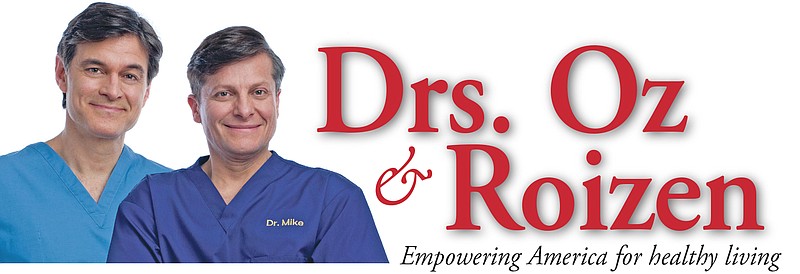You want to create a healthy environment for you and your loved ones - not only free of viral infections, but one with as little exposure to toxic chemicals as possible. The Agency for Toxic Substances and Disease Registry, part of the Department of Health and Human Services, says, "Harmful chemicals can get into your body if you breathe, eat or drink them or if they are absorbed through your skin." But, they add, we each respond individually depending on how much of the chemical we're exposed to, how long contact lasts, how often we're exposed, how the toxin enters our body and what kind of chemical it is.
Where to start: We suggest being wisely cautious (not paranoid) about controlling your exposure to hormone-disrupting chemicals that upset the balance of microbes in your gut biome and cause metabolic, immune system and neurological dysfunction. Those chemicals can also damage your fertility and interfere with your children's brain development.
So let's look at three steps you can take to reduce those risks.
1. Stop microwaving plastic containers - of any kind. BPA and BPS, a substitute for BPA, are found in food containers, and phthalates are used to make plastics more pliable. They're all hormone disruptors and are deposited into your food when you zap plastics. No wonder phthalates have been found in 75% of Americans, with kids having levels that are two to four times higher than adults. Plus, BPA shows up in 90% of urine samples in folks from the U.S., Germany and Canada.
Containers you should not microwave include plastic food storage containers, takeout packaging and tubs like those that contain margarine or yogurt, plastics holding frozen or ready-to-eat foods, and plastic bags. Instead, use glass or parchment paper to contain and cover foods you want to microwave.
Bonus: BPA is also found in register receipts and the lining of canned foods and drinks, and phthalates are in creams, makeups and shampoos, medical devices and even some time-released medications. So wash your hands after touching receipts or don't take them; skip most canned foods; and look for phthalate-free personal care products. (Go to https://bcaction.org and search for phthalate-free cosmetics). And if you do have to use plastics, avoid those with the recycling codes 3 (PVC or vinyl), 6 (polystyrene foam) or 7 (other, or may contain BPA).
2. Eliminate hormone-disrupting pesticides from your yard. Endocrine disruptors are found in two commonly used lawn pesticides: 2, 4-D and glyphosate. According to the Environmental Working Group, the side effects include disruption of brain development and problems with behavior. Other studies say hormone-disrupting pesticides are linked to reproductive changes, reduced sperm quality and damage to embryonic development.
Luckily, there are great ways to have a beautiful yard without exposing yourself or your kids, pets and friends to the potential risks that come from pesticides. They include soil and hydration management and the use of weed- and insect-resistant plantings and nontoxic, bug-discouraging agents, like garlic oil and vinegar. Also, opt for natural or plant-based fertilizers and mulch that's herbicide-free. For more advice, check out the Beyond Pesticides Pest and Weed Database at www.beyondpesticides.org/resources/managesafe/choose-a-pest.
3. Drink filtered tap water, not bottled water. Americans drink around 42 gallons of bottled water per person annually. Unfortunately, one study found that virtually all bottled water is contaminated with bits of microplastic. One popular brand had 10,000 particles per liter. And you know plastic contributes to health-threatening metabolic and reproductive problems.
Plus, Americans use 50 billion water bottles a year, which get thrown out and pollute the environment, so even the fish are eating microplastics!
On top of that, tap water is tested more frequently than bottled water. And you can eliminate even more contamination if you get a carbon or reverse-osmosis filter for your home tap and use a nonplastic, reusable water bottle to take with you.
These three easy steps can protect you and yours from potential environmental assaults on your health.
Mehmet Oz, M.D. is host of "The Dr. Oz Show," and Mike Roizen, M.D. is Chief Wellness Officer and Chair of Wellness Institute at Cleveland Clinic. To live your healthiest, tune into "The Dr. Oz Show" or visit sharecare.com.
(c)2020 Michael Roizen, M.D.
and Mehmet Oz, M.D.
King Features Syndicate

